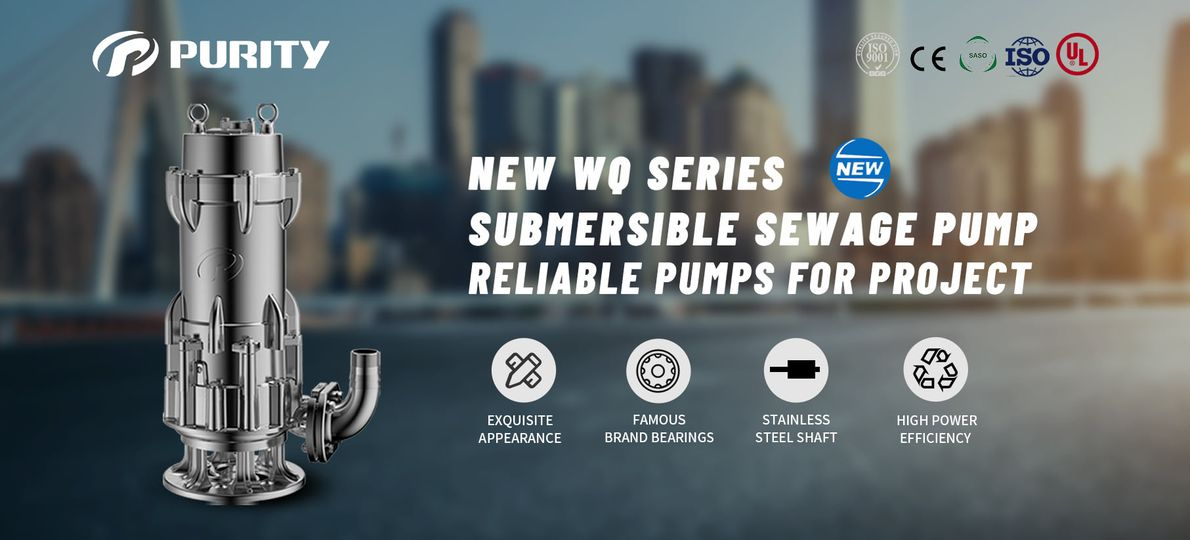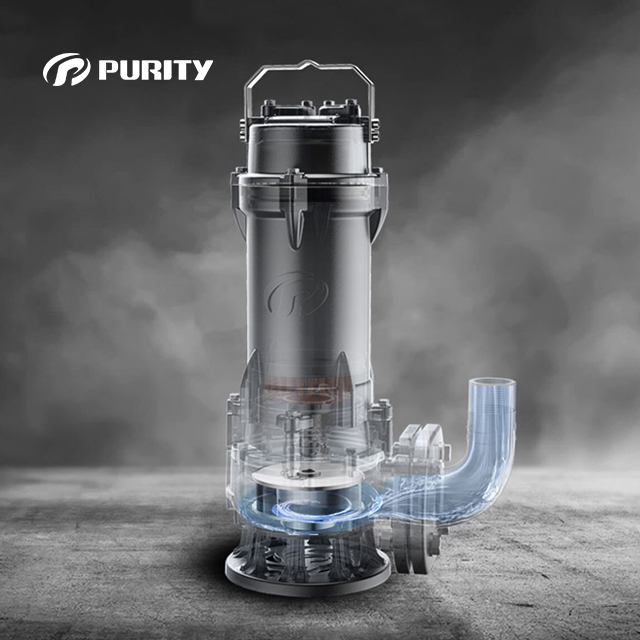When choosing a pump for residential or commercial applications, one common question arises: is a sewage pump better than a sump pump? The answer largely depends on the intended use, as these pumps serve distinct purposes and have unique features. Let’s explore their differences and applications to help determine which is better for specific needs.
Understanding Sewage Pumps
Sewage pumps are designed to handle wastewater containing solid particles and debris. These pumps are commonly used in households, commercial buildings, and industrial facilities to move sewage to a septic tank or a municipal sewer system. Sewage pumps are built with robust components, including:
Cutting Mechanism: Many sewage pumps feature a cutting mechanism to break down solids before pumping.
Powerful Motors: Electric sewage pump uses high-powered motor to handle the viscous and debris-filled nature of sewage.
Durable Materials: Made of materials such as cast iron and stainless steel, sewage pumps are resistant to corrosion and wear.
 Figure| Purity Electric Sewage Pump WQ
Figure| Purity Electric Sewage Pump WQ
Understanding Sump Pumps
Sump pumps, on the other hand, are used to prevent flooding by removing excess water from basements or low-lying areas. They are especially common in areas prone to heavy rainfall or high water tables. Key features of sump pumps include:
Float Switch: A float switch activates the pump when water reaches a certain level.
Compact Design: These pumps are designed to fit in sump pits, making them efficient for small spaces.
Lighter Duty: Sump pumps typically handle clear or slightly muddy water, not solids or debris.
Key Differences Between Sewage Pump and Sump Pump
1.Purpose: The most significant difference between sewage and sump pumps lies in their purpose. Sewage pumps are for wastewater and solid waste, while sump pumps focus on water removal to prevent flooding.
2.Material Handling: Sewage pumps can handle solids and debris, whereas sump pumps are only suitable for liquids.
3.Durability: Sewage pumps are often more durable due to their exposure to harsher materials and conditions.
4.Installation: Sewage pumps are usually installed as part of a broader plumbing or septic system, while sump pumps are standalone units in sump pits.
Which is Better?
Deciding whether a sewage pump is better than a sump pump depends on your requirements:
For Flood Prevention: Sump pumps are the clear choice. Their design and features cater specifically to removing excess water from basements or crawl spaces.
For Wastewater Removal: A sewage pump system is essential for any application involving solid waste. Its durability and cutting mechanism make it ideal for managing sewage.
Purity Sewage Submersible Pump Has Unique Advantages
1. Purity sewage submersible pump adopts a full-lift design, which increases the actual performance point usage range of customers and reduces the problem of electric sewage pump burning caused by selection problems.
2. It is suitable for ultra-wide voltage operation. Especially during peak power consumption, Purity sewage submersible pump solves the common phenomenon of starting problems caused by voltage drop and high temperature during operation.
3. Purity sewage submersible pump uses a stainless steel welded shaft, which can improve the rust resistance of the shaft and increase its service life.
 Figure| Purity Sewage Submersible Pump WQ
Figure| Purity Sewage Submersible Pump WQ
Conclusion
Neither a sewage pump nor a sump pump is universally “better”; each excels in its respective application. Understanding your specific needs and the pump’s functionality is key to making an informed choice. Consulting with professionals can further ensure that the selected pump meets the demands of your property.Both sewage and sump pumps play vital roles in modern water management systems, and each deserves recognition for its specialized contributions.Purity pump has significant advantages among its peers, and we hope to become your first choice. If you are interested, please contact us.
Post time: Dec-12-2024



